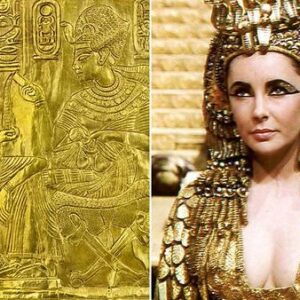In the annals of history, there are moments when tragedy strikes even the most resilient and philosophical minds. Such was the fate of Seneca, the renowned Stoic philosopher, whose life came to a tragic end, leaving behind a legacy that continues to inspire and provoke contemplation.
Seneca, born Lucius Annaeus Seneca, was a prominent figure in ancient Rome, known for his philosophical works and his role as a trusted advisor to Emperor Nero. He embraced the teachings of Stoicism, a school of thought that emphasized virtue, inner tranquility, and the acceptance of fate. Throughout his life, Seneca exemplified these principles, striving to live a virtuous and meaningful existence.
However, as fate would have it, tragedy befell Seneca in his later years. He found himself entangled in the treacherous web of Roman politics, where power struggles and conspiracies ran rampant. Despite his wisdom and integrity, Seneca became embroiled in the tumultuous events of his time, which would ultimately lead to his downfall.
The circumstances surrounding Seneca’s death were marked by turmoil and injustice. Accused of involvement in a conspiracy against Emperor Nero, Seneca was compelled to take his own life, a fate he accepted with stoic resolve. In the face of adversity, he upheld his principles and chose to die by his own hand, displaying the unwavering courage that had defined his life.
The death of Seneca reverberated throughout Rome and the intellectual circles of the time. It was seen as a tragic loss, not only for the world of philosophy but for humanity as a whole. Seneca’s writings, which encompassed a wide range of topics including ethics, virtue, and the nature of happiness, had garnered him a significant following. His works continued to inspire generations long after his passing.
What made Seneca’s death particularly poignant was the stark contrast between his teachings and the circumstances of his demise. Stoicism preached acceptance of one’s fate and the ability to find tranquility amidst adversity. Seneca’s own death seemed to epitomize the stoic ideal, as he faced his end with unwavering composure. However, it also highlighted the tragic irony of a philosopher who championed virtue and wisdom being caught in the throes of political intrigue and facing an unjust fate.
Yet, despite the tragic circumstances surrounding his death, Seneca’s philosophical legacy endured. His writings, collected in works such as “Moral Letters to Lucilius” and “On the Shortness of Life,” continue to offer insights into the human condition and provide guidance on living a meaningful and virtuous life. Seneca’s emphasis on self-reflection, self-control, and the pursuit of wisdom resonates with readers even in the modern age.
Seneca’s death serves as a poignant reminder of the complexities of life and the fragility of human existence. It underscores the profound influence that external circumstances can have on even the most enlightened minds. Yet, in the face of tragedy, Seneca’s unwavering commitment to his philosophical ideals remains an enduring testament to the power of the human spirit.
As we reflect on the death of Seneca, we are reminded of the importance of cultivating inner strength and resilience, regardless of the challenges we face. Seneca’s life and death invite us to embrace the teachings of Stoicism, finding solace in wisdom, and seeking virtue amidst the uncertainties of life.
While tragedy may have befallen the stoic philosopher, his spirit lives on through his writings and the indelible mark he left on the realm of philosophy. Seneca’s legacy continues to inspire individuals to confront the adversities of life with courage, wisdom, and a steadfast commitment to virtuous living.














